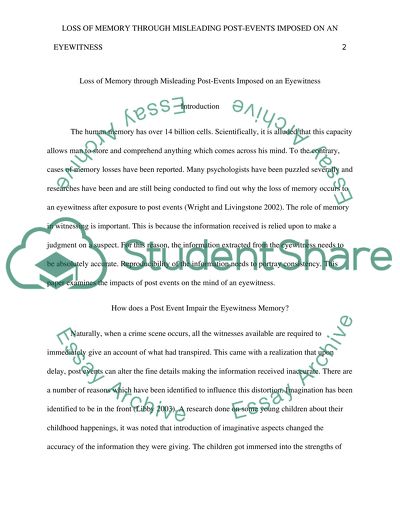Cite this document
(“If an eyewitness's memory is affected by misleading postevent Essay”, n.d.)
Retrieved from https://studentshare.org/psychology/1475134-if-an-eyewitnessyies-memory-is-affected-by
Retrieved from https://studentshare.org/psychology/1475134-if-an-eyewitnessyies-memory-is-affected-by
(If an eyewitness'S Memory Is Affected by Misleading Postevent Essay)
https://studentshare.org/psychology/1475134-if-an-eyewitnessyies-memory-is-affected-by.
https://studentshare.org/psychology/1475134-if-an-eyewitnessyies-memory-is-affected-by.
“If an eyewitness'S Memory Is Affected by Misleading Postevent Essay”, n.d. https://studentshare.org/psychology/1475134-if-an-eyewitnessyies-memory-is-affected-by.


